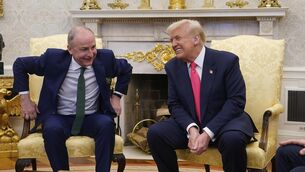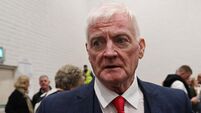Reports show Cowen’s culpability in banking crisis
Mr Cowen devoted a significant chunk of that speech to defending his own record as finance minister prior to becoming Taoiseach.
The opposition thought it was simply a preemptive attempt at damage limitation ahead of the publication of the preliminary banking inquiry reports. But as the reports themselves made very clear yesterday, no amount of pre-emptive damage limitation would have worked – because they are simply devastating for Mr Cowen and the Government.













